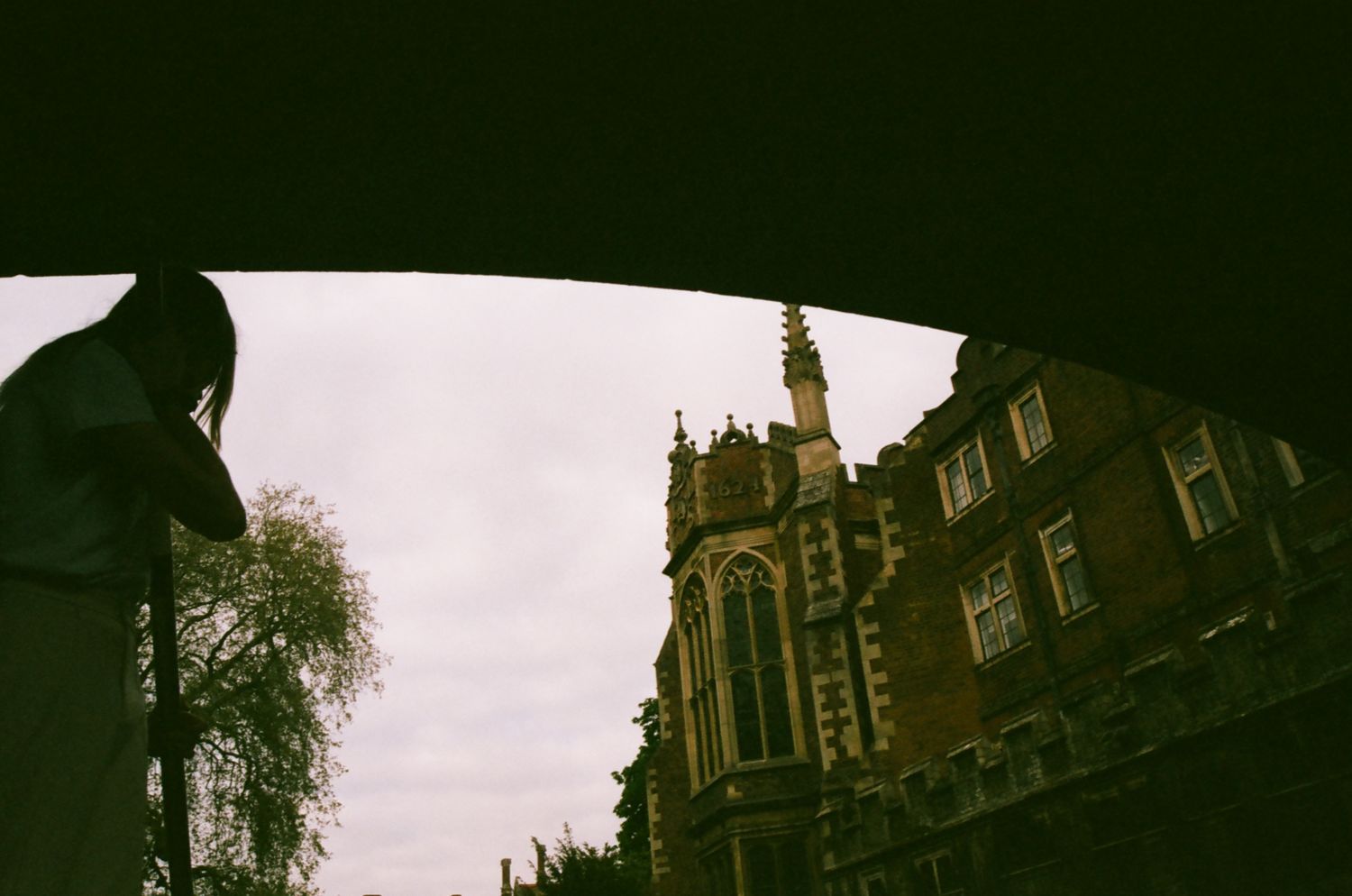Saltburn is a film that defies expectations. It leads you into a realm that transcends the anticipated Call Me By Your Name x Oxbridge fairytale, and eventually leaves you exiting the cinema with a mind struggling to grasp the narrative that has just unfolded. Love it or hate it, the film deserves credit for offering a predominantly accurate portrayal of the Oxbridge experience.
Amidst the Cambridge hustle and bustle culture, we occasionally overlook the opportunity to romanticise the historical splendour and traditions of this place. After enduring eight weeks of hard work and a yearning for home, having formals, May Balls and relatable supervision moments projected onto a screen in the Grafton forces you to look at the Oxbridge experience with new eyes. There’s something quite special about going into the cinema and being able to see your own experience reflected back at you; it forces you to see it again and re-identify yourself in this charming niche.
“I felt right back on the judging streets of Sidge, scurrying to my lectures among Cam’s top fashionistas”
Emerald Fennell, both director and writer of the black comedy film, holds an English degree from Oxford, offering an unsurprising depth of accuracy rooted in her lived experience of Oxbridge life. “The film could also be an advert for Oxford. Again, it looks beautiful, and fun”, the Guardian reports. But what did Saltburn actually get right about Oxbridge and, interestingly, what was presented as fiction?

Let’s first take a look at the supervision/tutorial scene. The setting is unequivocally accurate and the satirical nod to an excessively long reading list that has us all in a stranglehold this Christmas break hits home a bit too hard. Yet again, who actually reads all of it? Farleigh strolls in fashionably late in line with the famous perpetual tardiness of Cambridge and Oxford students, and suddenly we learn the supervisor and his mother go way back to their days as undergrads – a stark reference to the nepotism ingrained in the universities.
The supervisor’s struggle to locate Prescot mirrors the confusion that arises in Oxbridge, where Londoners may struggle to place anything beyond the M25, and get confused when buses up North don’t have two sets of doors. Meanwhile, the supervisor is evidently bored by Oliver’s work – a universal experience of the agonising effort put into an essay, only to have it torn apart by a bored academic who seems like they’d rather be doing anything else.
“Highlighting the tendency of some to play the ‘poor card’ rather than acknowledging their privileged reality”
Off to a less-than-hopeful academic start, how does the social scene compare? College bops are present in the film, albeit romantically exaggerated and hyperbolically portrayed for the sake of cinematic effect – imagine the Saltburn club scene in Revs. As Cambridge students, the painful realisation sets in that we will never quite achieve the polished look of Jacob Elordi in a sweaty Sunday Lola’s. Friend groups gather around pub tables, smoking away, and unexpected Mean Girl moments of “you can’t sit with us” are more prevalent than anticipated. How did they capture the intricacies of college cliques so accurately? The gossip is captured perfectly too. At Cambridge, we often emphasise the intensity not only of academia but also of friendships and rumours. When the girl, a friend of Felix, comments on Oliver’s dress sense, I felt right back on the judging streets of Sidge, scurrying to my lectures among Cam’s top fashionistas.
A notable observation is that some Oxbridge students tend to either excessively flaunt their affluent background or downplay their privilege, with little in between. While some will admit their fortunes, individuals akin to the elusive Oliver Quick hide in the shadows, profusely self-describing with terms like ‘poor’ and ‘working class’, despite LinkedIn profiles proudly showcasing top-tier private schools and social media depicting a seemingly cosy and comfortable family life. Saltburn astutely captures this particular phenomena, highlighting the tendency of some to play the ‘poor card’ rather than acknowledging their privileged reality. We will let them off for not being actual murderers, however.
Moving swiftly on to the humble abode, the film aptly portrays Oxbridge rooms. All down to the utter mess and chaos that Felix takes pride in, with the workload and demands of Cambridge leaving you practically incapable of tidying your own room.
“We seem to be wishing exams upon us just to enjoy the feeling of their completion”
As the year draws to an end, we witness an exaggerated rendition of “trashing” unfold. While a tradition at both universities, it’s unclear whether the film heightened its portrayal or if Oxford succeeds over Cambridge in exam celebrations. The romanticised depiction of trashing here, especially as colleges increasingly ban the tradition for environmental and reputation reasons, leaves one pondering the authenticity of the celebration .
Formals and May Balls also enchant the viewer. It can be easy to take formals for granted if you are an avid attendee, but seeing them on the big screen emphasises their preciousness. Though May Ball coverage was limited, it’s still a very well received representation, especially as Michaelmas blues ensnare us, tempting us to yearn for the arrival of Easter Term – a sentiment worth questioning as we seem to be wishing exams upon us just to enjoy the feeling of their completion.
Saltburn provides a disconcertingly accurate portrayal of the Oxbridge experience. While making some necessary adjustments for cinematic appeal, it enables Oxbridge students (at least for the first half) to romanticise the highs and lows of university life, offering outsiders a glimpse into the reality of it all. Many moments had me exclaiming to my parents how much I identified with the events unfolding on screen. Overall, it remains a film that left my friend and me wondering if a hidden camera had secretly captured our college’s best and worst moments. However, as for when the twist is unveiled, we earnestly hope it doesn’t foreshadow the remainder of our Cambridge experience.


